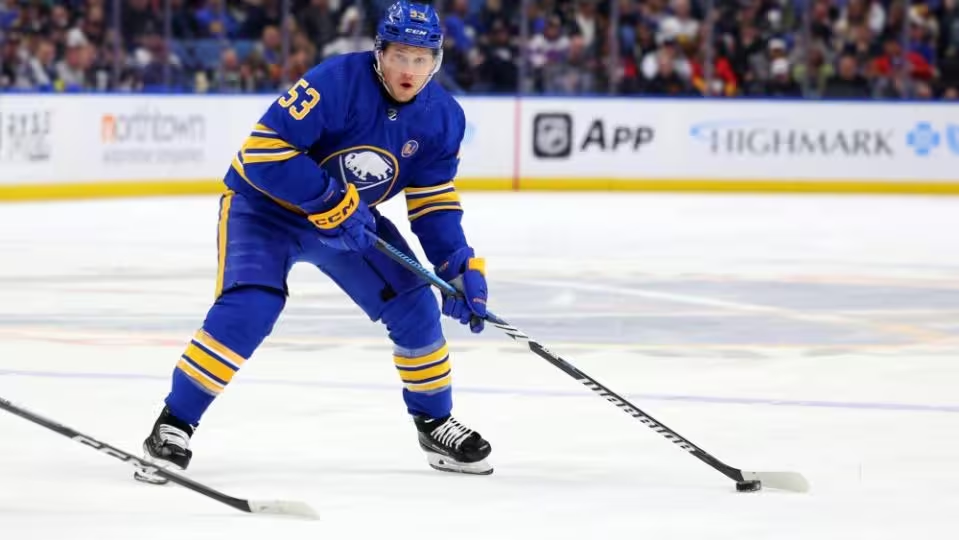The Buffalo Sabres officially moved on from Jeff Skinner, the top-paid forward on the team’s roster, by buying out the final three years of the veteran’s contact.
The move comes a day after GM Kevyn Adams informed reporters at the NHL draft in Las Vegas he had initiated the buyout paperwork. And it represents yet another example of how the Sabres have mismanaged their roster during what has become an NHL-record 13-season playoff drought.
The 32-year-old Skinner becomes the third player to have his contract bought out by Buffalo over that span, joining Ville Leino and Christian Ehrhoff.
The buyout comes as the Sabres are once again in transition, with Lindy Ruff returning as coach for a second stint, this time to replace Don Granato, who was fired after Buffalo underachieved in finishing 12th in the Eastern Conference.
The move also signaled Adams’ inability to find a trade partner, while being handcuffed by Skinner having the right to decline a deal because of the no-move clause in his contract.
This marks the end of Skinner’s up-and-down six-year stint in Buffalo, where his production was inconsistent from one season to the next, and he was often knocked for defensive lapses. Acquired in a trade with Carolina in the summer of 2018, Skinner scored a career-best 40 goals in his first season in Buffalo, which prompted the team to sign him to an eight-year, $72 million contract.
For Buffalo, the move frees up $7.55 million in salary cap space next season, though the Sabres will now be on the hook paying out two-thirds of the remaining $22 million Skinner is owed spread across the next six seasons.
For Skinner, the 14-year veteran immediately becomes a free agent in continuing to pursue what’s been an elusive opportunity to compete in the playoffs.
Including his first eight seasons in Carolina, Skinner’s 1,006 NHL games are the most of any player not to have been a member of a team that qualified for the postseason.
Skinner underperformed last season. Though he finished with 24 goals — the ninth time he’s scored that many — he finished with just 46 points while having difficulty finding a regular spot in the lineup. That was still a drop from the 35 goals and career-best 82 points Skinner posted the previous season.
“There’s a lot of variable that go into it,” Skinner said during an end-of-season session with reporters in April, while saying he intended to focus on those variables in the summer.
“I try to help the team win in…

